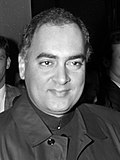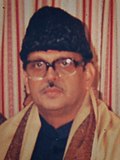 |
|---|
| Party | Votes | % | Seats |
|---|
| Indian National Congress (Indira) | 118,894,702 | 39.53 | 197 |
| Janata Dal | 53,518,521 | 17.79 | 143 |
| Bharatiya Janata Party | 34,171,477 | 11.36 | 85 |
| Communist Party of India (Marxist) | 19,691,309 | 6.55 | 33 |
| Telugu Desam Party | 9,909,728 | 3.29 | 2 |
| Communist Party of India | 7,734,697 | 2.57 | 12 |
| Dravida Munnetra Kazhagam | 7,196,099 | 2.39 | 0 |
| Bahujan Samaj Party | 6,213,390 | 2.07 | 3 |
| All India Anna Dravida Munnetra Kazhagam | 4,518,649 | 1.50 | 11 |
| Janata Party | 3,029,743 | 1.01 | 0 |
| Shiromani Akali Dal (Simranjit Singh Mann) | 2,318,872 | 0.77 | 6 |
| Revolutionary Socialist Party | 1,854,276 | 0.62 | 4 |
| Pattali Makkal Katchi | 1,561,371 | 0.52 | 0 |
| Doordarshi Party | 1,338,566 | 0.45 | 0 |
| All India Forward Bloc | 1,261,310 | 0.42 | 3 |
| Jharkhand Mukti Morcha | 1,032,276 | 0.34 | 3 |
| Indian Congress (Socialist) – Sarat Chandra Sinha | 978,377 | 0.33 | 1 |
| Indian Union Muslim League | 974,234 | 0.32 | 2 |
| Indian People's Front | 737,551 | 0.25 | 1 |
| Peasants and Workers Party of India | 636,589 | 0.21 | 0 |
| All India Majlis-e-Ittehadul Muslimeen | 617,376 | 0.21 | 1 |
| Lok Dal (Bahuguna) | 602,110 | 0.20 | 0 |
| Bharatiya Republican Paksha | 572,434 | 0.19 | 0 |
| Karnataka Rajya Ryota Sangha | 495,565 | 0.16 | 0 |
| Republican Party of India (Khobragade) | 468,615 | 0.16 | 0 |
| Gorkha National Liberation Front | 435,070 | 0.14 | 1 |
| Shiromani Akali Dal (Badal) | 427,609 | 0.14 | 0 |
| Jharkhand Dal | 367,838 | 0.12 | 0 |
| Kerala Congress (M) | 352,191 | 0.12 | 1 |
| Shiv Sena | 339,426 | 0.11 | 1 |
| Marxist Co-ordination Committee | 247,013 | 0.08 | 1 |
| Nagaland People's Council | 239,124 | 0.08 | 0 |
| Hindu Mahasabha | 217,514 | 0.07 | 1 |
| Manipur Peoples Party | 147,128 | 0.05 | 0 |
| Republican Party of India | 129,300 | 0.04 | 0 |
| Humanist Party of India | 122,947 | 0.04 | 0 |
| All India Dalit Muslim Minorities Suraksha Mahasangh | 120,159 | 0.04 | 0 |
| Maharashtrawadi Gomantak Party | 116,392 | 0.04 | 1 |
| Kuki National Assembly | 108,085 | 0.04 | 0 |
| Shiromani Akali Dal | 100,570 | 0.03 | 0 |
| Marxist Communist Party of India (S.S. Srivastava) | 100,300 | 0.03 | 0 |
| People's Party of Arunachal | 96,181 | 0.03 | 0 |
| Uttar Pradesh Republican Party | 91,740 | 0.03 | 0 |
| Sikkim Sangram Parishad | 91,608 | 0.03 | 1 |
| Amra Bangali | 80,834 | 0.03 | 0 |
| Jammu & Kashmir National Conference | 71,194 | 0.02 | 3 |
| Mizo National Front | 70,749 | 0.02 | 0 |
| Kerala Congress | 68,811 | 0.02 | 0 |
| Tharasu Makkal Mandaram | 64,885 | 0.02 | 0 |
| Democratic Party | 43,667 | 0.01 | 0 |
| Shoshit Samaj Dal | 42,282 | 0.01 | 0 |
| Uttarakhand Kranti Dal | 39,465 | 0.01 | 0 |
| Communist Party of India (Marxist–Leninist) | 38,937 | 0.01 | 0 |
| Muslim Majlis Uttar Pradesh | 25,839 | 0.01 | 0 |
| Proutist Bloc Of India | 23,331 | 0.01 | 0 |
| Jammu & Kashmir Panthers Party | 22,625 | 0.01 | 0 |
| Bharatiya Jana Sangh | 22,446 | 0.01 | 0 |
| Karnataka Gana Parishad | 19,593 | 0.01 | 0 |
| Socialist Party (Lohiya) | 17,639 | 0.01 | 0 |
| Tamiliar Kazhagam | 12,859 | 0.00 | 0 |
| Rising Sun Party | 12,858 | 0.00 | 0 |
| Indian Congress (J) Trikha Group | 12,539 | 0.00 | 0 |
| Socialist Party | 12,430 | 0.00 | 0 |
| Socialist Unity Centre of India | 8,747 | 0.00 | 0 |
| All India Garib Congress | 7,635 | 0.00 | 0 |
| Hul Jharkhand Party | 6,663 | 0.00 | 0 |
| Bhatiya Krishi Udyog Sangh | 5,895 | 0.00 | 0 |
| Lok Party | 4,731 | 0.00 | 0 |
| Akhil Bhartiya Gorkha League (Budhiman Gurung) | 4,426 | 0.00 | 0 |
| Shoshit Samaj Party | 3,756 | 0.00 | 0 |
| Scientific Vedic Revolutionary Party | 3,470 | 0.00 | 0 |
| Deseeya Karshaka Party | 3,059 | 0.00 | 0 |
| Akhil Bharatiya Ram Rajya Parishad | 2,998 | 0.00 | 0 |
| Barat Desam Labour Party | 2,944 | 0.00 | 0 |
| Progressive Hul Jharkhand | 2,890 | 0.00 | 0 |
| Republicon Presidium Party | 2,791 | 0.00 | 0 |
| West Orissa Peoples Front | 2,682 | 0.00 | 0 |
| West Bengal Socialist Party (Biman Mitra) | 2,411 | 0.00 | 0 |
| All India Shiromani Baba Jiwan Singh Mazhbi Dal | 2,368 | 0.00 | 0 |
| Akhil Bhartiya Hindustani Krantikari Samajwadi Party | 2,263 | 0.00 | 0 |
| Green Party of India | 2,142 | 0.00 | 0 |
| Akhil Baratiya Pichhra Varg Party | 2,055 | 0.00 | 0 |
| Tamil Nadu Peoples Welfare Association | 1,964 | 0.00 | 0 |
| Sadharam Rajya Parishad | 1,928 | 0.00 | 0 |
| Indian National Congress (O) Anti-Merger Group | 1,735 | 0.00 | 0 |
| Gujarat Janata Parishad | 1,577 | 0.00 | 0 |
| All India Justice Party | 1,428 | 0.00 | 0 |
| Peoples Democracy of India | 1,392 | 0.00 | 0 |
| Punjab Peoples Party | 1,374 | 0.00 | 0 |
| Hindustan Janata Party | 1,361 | 0.00 | 0 |
| Bharatha Makkal Congress | 1,357 | 0.00 | 0 |
| Deccan Congress | 1,332 | 0.00 | 0 |
| Akhil Bhartiya Lok Tantrik Party | 1,272 | 0.00 | 0 |
| Vijaya Shakti | 1,093 | 0.00 | 0 |
| Bhartiya Loktantrik Mazdoor Dal | 1,035 | 0.00 | 0 |
| Pandav Dal | 918 | 0.00 | 0 |
| National Republican Party | 839 | 0.00 | 0 |
| Bhartiya Loktantrik Mazdoor Sangh | 703 | 0.00 | 0 |
| Mahabharat Peoples Party | 694 | 0.00 | 0 |
| Indian Union Muslim League (IML) | 687 | 0.00 | 0 |
| Manipur Peoples Council | 677 | 0.00 | 0 |
| Vishal Bharat Party | 621 | 0.00 | 0 |
| Republican Party of India (Gavai Group) | 539 | 0.00 | 0 |
| Punjab Kairon Dal | 493 | 0.00 | 0 |
| Peoples Party of India | 478 | 0.00 | 0 |
| Indian Labour Party | 406 | 0.00 | 0 |
| Socialist Labour League | 391 | 0.00 | 0 |
| Bharatiya Krantikari Kisan Sang | 367 | 0.00 | 0 |
| Kamaraj Desiya Congress | 322 | 0.00 | 0 |
| Punjab Naya Front | 314 | 0.00 | 0 |
| Hindu Shiv Sena | 160 | 0.00 | 0 |
| Bhartiya Lok Kalyan Dal | 145 | 0.00 | 0 |
| Labour Party of India | 99 | 0.00 | 0 |
| Independents | 15,793,781 | 5.25 | 12 |
| Nominated Anglo-Indians | | 2 |
| Total | 300,776,423 | 100.00 | 531 |
|
| Valid votes | 300,776,423 | 97.32 | |
|---|
| Invalid/blank votes | 8,274,072 | 2.68 | |
|---|
| Total votes | 309,050,495 | 100.00 | |
|---|
| Registered voters/turnout | 498,906,129 | 61.95 | |
|---|
| Source: ECI |






